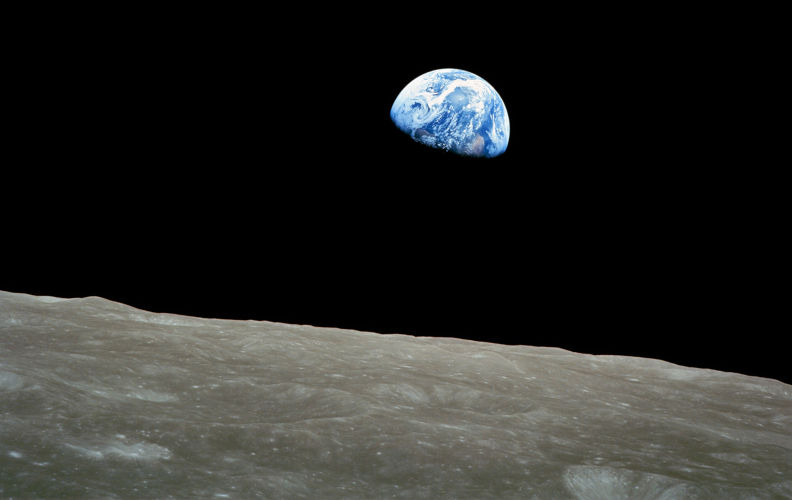Spaceship Earth is experiencing turbulence
August 6, 2024
Spaceship Earth remains a compelling metaphor for our collective reality. Unfortunately, our ship looks as if it may have been made by an inter-galactic branch of Boeing.
Until I consulted what Tony Abbott might have called the suppository of all wisdom – Wikipedia – I hadn’t realised quite how long the idea of Spaceship Earth had been around. I thought it had been dreamed up by drug addled hippies during the Summer of Love, but it has some longstanding and serious champions, too. George Orwell, for example, captured the idea this way:
The world is a raft sailing through space with, potentially, plenty of provisions for everybody; the idea that we must all cooperate and see to it that everyone does his fair share of the work and gets his fair share of the provisions seems so blatantly obvious that one would say that no one could possibly fail to accept it unless he had some corrupt motive for clinging to the present system.
Turns out that there is no shortage of people ‘clinging to the present system’, and not just because they’re corrupt and have a vested interest in preserving the dysfunctional current order either. On the contrary, many people simply cannot conceive of any other way of organising the ship, despite the fact that the crew is fighting among themselves, and the accommodation for those in the lower decks is becoming completely uninhabitable.
To be fair, some of the passengers have experimented with an array of different forms of organisation in an effort to inject some stability, legitimacy and fairness into life on board. But even democratic forms of governance, widely perceived to be the most desirable, seem incapable of dealing with some our most fundamental collective action problems, or addressing the concerns of those in steerage. Wealthy passengers still call the shots and simply don’t seem to understand or care about the plight of their impoverished counterparts.
And yet it’s not that difficult to come up with a list of reforms that might help to put us on a more sustainable even keel:
- Make the stability of the Earth and the environment upon which we all depend the single most important goal of everyone on board.
- Encourage the most powerful states to cooperate seriously in achieving this.
- Empower the United Nations to do more than simply urge good behaviour.
- Initiate genuine arms control measures and use the money saved to make a transition to sustainability and equality through wealth redistribution within and between countries.
- Use the tax system to discourage excessive, unsustainable, unfair, mindless consumption.
- Cultivate a sense of solidarity among crew members as we realise that we really are all in this together.
It’s hard to know which of these morally desirable, potentially achievable goals is the least likely to be taken seriously, let alone realised. The hippies may have been good at consciousness raising, but they weren’t famous for their practicality, unfortunately; although levitating the Pentagon still has its attractions.
Yet given that the ship really does seem to be falling apart, doubts about its carrying capacity, and a conspicuous absence of lifeboats – despite the fantasies of the self-aggrandising/obsessed tech bros – really ought to be uppermost in our collective consciousness. That they aren’t tells us much about the inadequacy of the ship’s officer class.
Thoughtful leaders with an understanding of the universal nature of our collective problems and any real concern about the future are depressingly thin on the ground. Australia illustrates the problem. As the old joke has it, no matter who you vote for a politician gets elected. Consequently, we end up with one uninspiring, unimaginative, under-qualified duffer after another, no matter which political party may be in power.
‘But we have to be realistic’ is the usual justification for ludicrously expensive and pointless initiatives like AUKUS, or permitting yet more fossil fuel projects that we absolutely know will make the existential challenge of keeping the ship afloat all the more difficult – even for those of us with tickets for self-contained luxury cabins like Australia.
Part of the problem is that we denizens of the upper decks can’t imagine that life won’t continue as it is, or that we might have an obligation to help those less fortunate than ourselves. The Soviet Union of the 1960s may not be the most obvious place to look for inspiration in this context, but the sunlit Brezhnevian uplands may be the best we can collectively hope for – and something that remains beyond the wildest dreams of our fellow passengers in Haiti, Sudan, the DRC…
True, the USSR was a bit dull, but a spot of dullness may be just what the world needs at this historical juncture. Let’s not forget that many of our fellow crew members have never even experienced peace or personal security, and the way things are going it’s hard to imagine that they ever will. Significantly lowered collective expectations might be something we need to get used to. If we don’t manage it voluntarily, the environment is likely to do it for us before too long.
Things are already getting a bit bumpy on Spaceship Earth. It would help if we knew where we were supposed to be going, of course, or whether anyone actually has a map. Rather than voiding out on the inflight entertainment, perhaps we should mutiny, or at least complain to the cabin staff. Still, look on the bright side: one of the unexpected advantages of being an older passenger is that I probably won’t have to witness it crash and burn.

